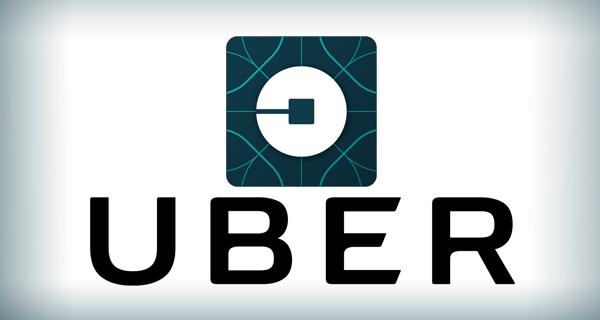Uber Blocked Data to Government After 2014 Delhi cab Rape

Representational use only.Image Courtesy: Wikimedia Commons
From deploying a unique blocking software that shut down systems, in case, of serious action by a government, including in India, and breaking laws to secretly lobbying the USA, Germany and France and exploiting violence against its drivers, Uber Technologies Inc. used unethical and illegal ways to expand globally under its cofounder and then-CEO Travis Kalanick in 2013-17.
The shocking revelations are part of the Uber Files, a trove of 124,000 files—including more than 83,000 emails, iMessages and WhatsApp messages—obtained by The Guardian and shared with the International Consortium of Investigative Journalists (ICIJ) and a global consortium of newsrooms in 30 countries, including The Indian Express, The Washington Post and the BBC.
The documents expose how the Silicon Valley start-up used unethical and questionable practices and breached laws to become a $44-billion giant with operations in 72 countries.
An investigation of the files by The Indian Express reveals an email titled ‘Dealing with regulatory issues’ sent by Uber’s then-Asia head Allen Penn to the India team asking it to “embrace the chaos. It means you are doing something meaningful”. In other words, he asked them to stonewall government queries and be “unresponsive”.
“Irrespective of what the competition and entrenched interests say, You and Uber are the ones improving India,” Penn wrote.
“We will likely have both local and national issues in almost every city in India for the rest of your tenure at Uber… Don’t talk to the Government or folks close to the Government unless you have specifically discussed [it] with Jordan (a reference to Jordan Condo, Uber’s head of public policy for Asia)… we will generally stall, be unresponsive, and often say no to what they want,” Penn further wrote.
Telling them that that is how Uber operates and “it’s nearly always the best”, Penn wrote: “Early quick meetings set us up for failure. Get comfortable with that approach… don’t let it distract you from your mission to dominate the market.”
After a woman passenger was raped by an Uber driver in New Delhi on December 5, 2014, Uber scrambled to guard its reputation and blamed local officials. Subsequently, the ride-hailing service was temporarily withdrawn from the Capital’s roads and was forced for the first time in any city in the world to apply for a licence to operate via an Indian subsidiary, not Uber BV, its Netherlands-based international firm.
Two months after the rape, confidential emails dated February 10, 2015, reveal how Uber used a software named Casper and later Ripley—called Kill Switch by company insiders—to block its data to the government. In fact, Kill Switch was deployed 13 times between 2014 and 2016 in Amsterdam, Montreal, Hong Kong, Budapest, Lyon and Paris under Kalanick’s orders.
The emails, titled ‘Uber Belgium/special tax inspectors’, refer to alleged VAT-return violation committed by Uber-Belgium and also show Uber manager Rob van der Woude providing a detailed account of how the tech giant blocked its data to the Narendra Modi government.
“What we did in India is [to] have the city team be as cooperative as possible and have BV take the heat. E.g. Whenever the local team was called to provide the information, we shut them down from the system making it practically impossible for them to give out any info despite their willingness to do so,” Woude wrote.
“At the same time, we kept directing the authorities to talk to BV representatives instead. Not sure if that works here given they have telco info but that bought us some months there,” Woude further writes.
Uber’s USA and New Delhi spokespersons provided identical replies when The Indian Express asked them about the use of the data blocking software: “Uber does not have a ‘Kill Switch’ designed to thwart regulatory inquiries anywhere in the world and has not since Dara Khosrowshahi became CEO in 2017. On the contrary, authorities regularly make requests for information and we routinely cooperate with those requests. While every company has software in place to remotely protect its corporate devices, such software should never have been used to thwart legitimate regulatory actions.”
Penn and Woude did not respond to The Indian Express queries.
The emails also show that tax officials seized Uber computers during a raid on its offices in Brussels in March 2015 before the software could be deployed. Subsequently, Uber devised a ‘dawn raid app’ and circulated a ‘dawn raid manual’ among its senior employees instructing them on how to manage a raid, sanitise telephone conversations if being tapped and what kind of data can be shared with the raid inspectors, The Indian Express reported.
In India, Uber was forced to make a structural shift in operations from the Netherlands to India-based subsidiary Resourcexpert India Private Limited while in countries like Belgium it was under pressure from tax authorities to hand over data of drivers who were using Uber phones.
A confidential email from Uber manager Filip Nuytemans dated February 10, 2015, on the subject of demands for driver data from special tax inspectors reveals that he was “open to sharing data as part of a new regulatory reform, but handing out that data now could lead to all those + 500 drivers being 1) prosecuted with risk of permanent seizure of their car plus fine 2) being audited by tax authorities knowing that most of them are not able to declare under current conditions”.
Another email from Uber’s legal counsel Zac de Kievit on the same date says: “Providing the driver list will gut our supply: it makes it much more easier for the taxman, regulators and police to terrify our supply and enforce against it… what is the least bad option here? Drivers being pursued via criminal proceedings or ourselves?… If we hand over the drivers list, our goose may be cooked.”
Subsequently, De Kievit was arrested for obstruction of justice by cutting IT access and activating the Kill Switch during a raid at Uber’s offices in Paris the same year.
Uber Admits to Past Mistakes; Says a 'Different' Company Now
New Delhi: As a leaked cache of confidential files illustrated its potentially dubious and illegal means to push into markets around the world, Uber said it will not make excuses for the past but wanted to be judged by its actions in the last five years, according to a PTI report.
A joint media investigation, dubbed the 'Uber Files', found that Uber used "stealth technology" to fend off government investigations.
Reached for comments, an Uber India spokesperson directed to a global statement the ride-sharing company had issued in response to the investigation.
In the statement, Uber acknowledged "mistakes" in the past and said that the company under CEO Dara Khosrowshahi since 2017, "is a different company."
"We have not and will not make excuses for past behaviour that is clearly not in line with our present values. Instead, we ask the public to judge us by what we've done over the last five years and what we will do in the years to come," the statement said.
"There has been no shortage of reporting on Uber's mistakes prior to 2017. Thousands of stories have been published, multiple books have been written - there's even been a TV series," the statement said.
Those "mistakes" five years ago culminated in the termination of several senior executives.
"It's also exactly why Uber hired a new CEO, Dara Khosrowshahi, who was tasked with transforming every aspect of how Uber operates," it said.
"Dara rewrote the company's values, revamped the leadership team, made safety a top company priority, implemented best-in-class corporate governance, hired an independent board chair, and installed the rigorous controls and compliance necessary to operate as a public company," the statement said.
Uber, it said, "is a different company today." It literally is a different company as "90 percent of current Uber employees joined after Dara became CEO."
Uber has "moved from an era of confrontation to one of collaboration, demonstrating a willingness to come to the table and find common ground with former opponents, including labor unions and taxi companies," the statement said.
"We are now regulated in more than 10,000 cities around the world, working at all levels of government to improve the lives of those using our platform and the cities we serve," the firm said.
Get the latest reports & analysis with people's perspective on Protests, movements & deep analytical videos, discussions of the current affairs in your Telegram app. Subscribe to NewsClick's Telegram channel & get Real-Time updates on stories, as they get published on our website.
























